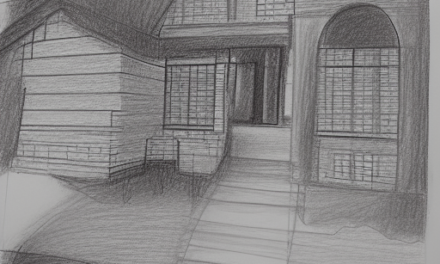The Maine Coon cat is a large domesticated breed. It is one of the oldest natural breeds in North America and originated in the U.S. state of Maine. It is also the official state cat of Maine. This breed is known for its intelligence and playful nature. Read on for more information on this breed.
Breeders created to preserve polydactylism in Maine Coons
Breeders of Maine Coon cats have worked to preserve polydactylism in their cats. These cats have larger paws, which has enabled them to live in conditions where they had to hunt and catch their own food. Today, a small percentage of Maine Coons still have this mutation.
Polydactylism in Maine Coons is a genetic trait that is inherited as an autosomal dominant trait. The condition is characterized by variable expressivity and incomplete penetrance. Breeders need to be aware of this genetic heterogeneity and adjust their breeding practices accordingly.
Polydactyl Maine Coon cats have extra toes, which gives them a unique look. These cats are just as loving and affectionate as normal Maine Coons. Moreover, they are often called double-paw cats. Polydactyl Maine Coon cats are found on the east coast of North America.
The mutation that causes polydactyly in Maine Coon cats is known as the Hemingway mutation. This mutation affects the gene that controls limb development. While polydactyly is a genetic anomaly, there are no known health risks associated with it.
While the CFA does not recognize polydactyl Maine Coons as a separate breed, polydactyl Maine Coons can be registered with the New Zealand Cat Fancy Inc. This breed was the first to recognize polydactyl cats as a separate breed and made polydactyl Maine Coons championship eligible in 2009. TICA followed suit and began accepting polydactyl Maine Coons in championships in May 2015.
Health issues
Maine Coon cats are generally healthy, but they do have a few health problems to be aware of. For example, these felines can suffer from hip dysplasia, a disease affecting the ball and socket of the hip joint. Although this condition is usually not life-threatening, it can cause severe pain and disability if left untreated. It can be treated with anti-inflammatory painkillers and joint supplements. In severe cases, surgery may be necessary.
Another health issue that may affect Maine Coon cats is hypertrophic cardiomyopathy, a genetic mutation that causes the heart muscle walls to thicken. This causes a reduced heart’s ability to pump blood properly. In severe cases, the muscle can become blocked, leading to heart failure and severe pain. While the cause of this disease is unknown, veterinarians are able to detect the disease early through an ultrasound scan of the heart.
If you’re considering adopting a Maine Coon, be sure to get your pet checked out by a veterinarian as soon as possible. This will allow you to catch any potential health problems early on and avoid them if possible. This breed of cat is prone to developing various problems, so you’ll want to be cautious when buying from a breeder.
A common cause of heart disease in Maine Coons is hypertrophic cardiomyopathy (HCM), which can cause heart failure. This condition can develop at any age, and it can be inherited. While it is rare, one in three of these cats will inherit the gene that causes this disease. Cats with this disorder should be excluded from breeding programs.
If a cat has this condition, it will require several medical tests. The most common treatment for this condition is oral medication. However, severe cases may require euthanasia.
Size
The Maine Coon cat is one of the largest domestic cats in the world. It can reach a height of about 30 inches, and it can weigh up to 25 pounds. It can take up to five years for it to reach its full size. This breed is also famous for its long tail, which can grow up to 16 inches long. Many people comment that the tail is longer than the cat itself. In fact, the longest known Maine Coon cat measured 120 cm in length, or 3 ft 11.2 inches.
The Maine Coon’s fur is thick and long, unlike that of a normal cat. Its coat is also very dense, so it can conserve heat in cold climates. In addition to their long fur, they also have a long bushy tail. The fur on these cats is made up of two layers, with a guard coat and a silky undercoat.
The Maine Coon is the third largest breed of cat in the world. It is native to the US state of Maine and has been recognized as the official state cat since 1985. This breed is known for its social nature and loyalty. Despite being a large cat, it doesn’t grow as large as its male counterpart.
The Maine Coon is a very intelligent and affectionate breed. Its size is a unique asset to the breed. It is among the most popular cats in the world, and is considered one of the most adaptable breeds. It is very active and friendly, and it is an excellent hunting animal.
Weight
A typical Maine Coon cat weighs seven to thirteen pounds. By six months of age, they have usually hit a growth spurt and are approaching adult size. It’s important to know how to calculate the right weight for your pet, which is easily done by putting it on a scale.
Because of their large size, the Maine Coon needs a large amount of protein and nutrients. It also needs to have regular grooming and toys to keep it happy. The main food you should provide your pet is traditional nutritional cat food. However, you should provide a slightly higher portion of this food than you would for a typical pet cat.
The physical attributes of the Maine Coon help them adapt well to harsh environments. They have long, thick fur on their underbelly, which is waterproof. Their large ears have tufts of fur that keep them warm in cold climates. In addition, their bushy tail keeps them off cold surfaces when sitting and acts as a wind breaker.
A Maine Coon kitten can put on up to 2.5 pounds within a month of birth, and can increase its weight in subsequent months. This is why it’s important to regularly check the weight of a kitten. If it’s falling behind the average weight, you may need to seek medical care to rule out any underlying health issues.
The Maine Coon is a popular pet. They are very affectionate, easygoing, and a loyal member of the family. Unlike many other cats, the Maine Coon is not excessively noisy. This makes them an ideal pet for a home with children. A good companion, a Maine Coon will enjoy playing with other pets and exploring their surroundings.
Exercise routine
A daily exercise routine for a Maine Coon cat can be the key to a happier and healthier cat. These cats are high-energy and climbers, and need to be kept busy. You should start by choosing a time that works best for both of you. For instance, if you can exercise your cat for at least an hour before bedtime, he or she will be more likely to fall asleep peacefully.
A daily exercise routine will also help prevent Maine Coons from becoming overweight. You should consult your veterinarian to determine the amount of food your pet should be eating. Besides daily exercise, you can also engage your cat in playtime with a toy mouse, a fish pole, or a ball.
You should also make sure to monitor your cat’s body temperature. If your cat is panting excessively, it’s a sign that it needs to cool down. Make sure that you provide water to keep your cat hydrated. Heatstroke or dehydration can cause seizures and brain swelling. Both conditions can lead to kidney failure and shock.
The Maine Coon is a large cat native to the U.S. They typically weigh between twelve and twenty pounds, although the males tend to be larger than the females. The breed is known for its long-haired double coat, making it the ideal pet for cold climates. These cats are also very person-oriented, making them a good choice for families with children. They are very social animals, and they will generally follow you around.




